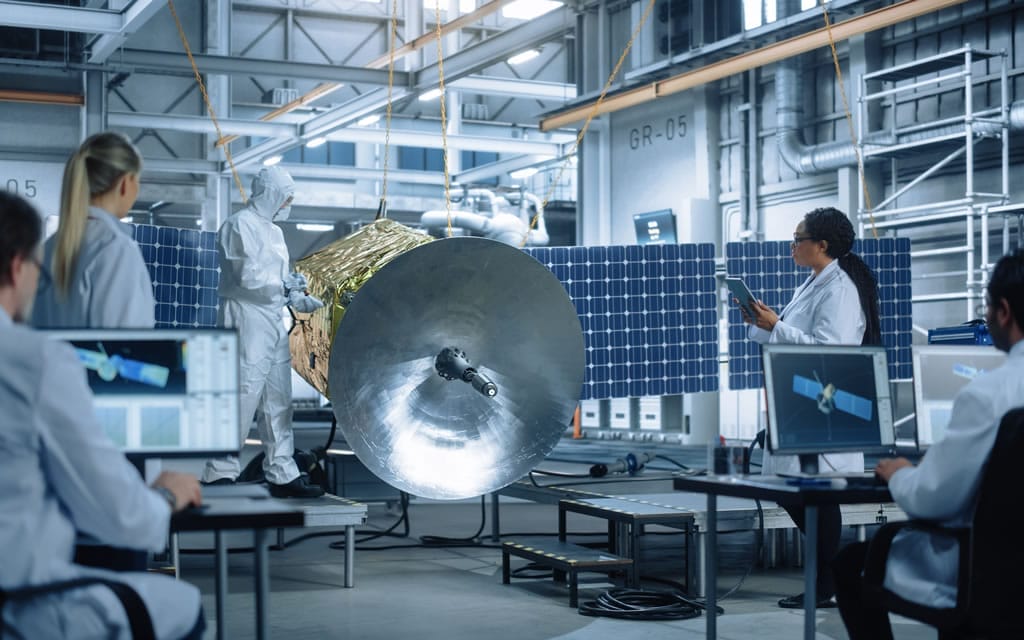Aerospace Engineering and Space Exploration
March 4, 2024 2024-03-04 13:12
Aerospace Engineering and Space Exploration
Aerospace engineering and space exploration represent the pinnacle of human ingenuity and curiosity. As a discipline, aerospace engineering is dedicated to designing and building aircraft, spacecraft, satellites, and missiles. It combines elements of mechanical, electrical, and computer engineering to develop advanced technologies for navigating both the skies and the cosmos. Space exploration, on the other hand, is the physical exploration of outer space, both by human spaceflights and by robotic spacecraft. Together, these fields push the boundaries of what is possible, expanding our knowledge of the universe and our place within it.
The Role of Aerospace Engineering
Aerospace engineering is split into two major branches: aeronautical engineering, focused on atmospheric vehicles like airplanes and helicopters, and astronautical engineering, which deals with spacecraft and rocketry. Both branches require a deep understanding of physics, materials science, propulsion, and aerodynamics, among other disciplines.
Engineers in this field work on a variety of technologies, including jet engines, rocket motors, satellite communications, and materials that can withstand the harsh conditions of space. The development of reusable rocket technology, for instance, has significantly reduced the cost of accessing space, making space exploration more feasible than ever before.
Milestones in Space Exploration
Space exploration has seen numerous milestones since the mid-20th century, beginning with the launch of Sputnik by the Soviet Union in 1957, the first artificial satellite to orbit the Earth. This event marked the beginning of the space race, leading to significant achievements such as the Apollo Moon landings, which culminated in Neil Armstrong and Buzz Aldrin walking on the Moon in 1969.
In recent years, the focus has shifted towards Mars exploration, with robotic rovers like NASA’s Perseverance and Curiosity roving the Martian surface, searching for signs of past life and preparing for future human missions. The International Space Station (ISS), a collaborative effort among several nations, serves as a microgravity laboratory where scientists conduct experiments in biology, human biology, physics, astronomy, and other fields.
The Future of Aerospace Engineering and Space Exploration
The future of aerospace engineering and space exploration holds incredible promise. With the advent of private spaceflight companies like SpaceX, Blue Origin, and Virgin Galactic, access to space is becoming more democratized. These companies are not only providing commercial satellite launch services but are also working towards enabling human space tourism and the colonization of other planets.
One of the most ambitious goals of current space exploration is the manned mission to Mars, aiming to establish a sustainable human presence on the Red Planet within the next few decades. Additionally, aerospace engineers are developing new propulsion technologies, such as ion thrusters and nuclear propulsion, which could drastically reduce travel time within our solar system.
Another exciting area of development is in satellite technology, where advancements are enabling smaller, more efficient satellites. These satellites are being used for a variety of purposes, from improving global internet coverage to monitoring climate change and natural disasters.
Conclusion
Aerospace engineering and space exploration are at the forefront of expanding human knowledge and capability. Through the combined efforts of scientists, engineers, governments, and private companies, we are not only exploring the vast expanse of space but are also developing technologies that have the potential to improve life on Earth. As we look to the stars, the possibilities are limitless.
Aerospace Engineering and Space Exploration
March 4, 2024 2024-03-04 13:12Popular Tags




















